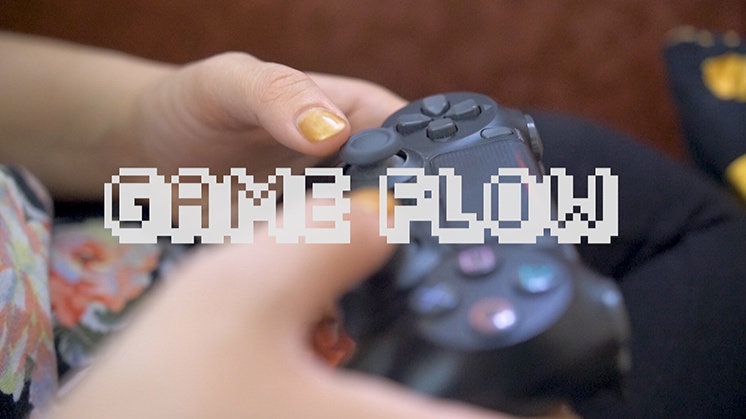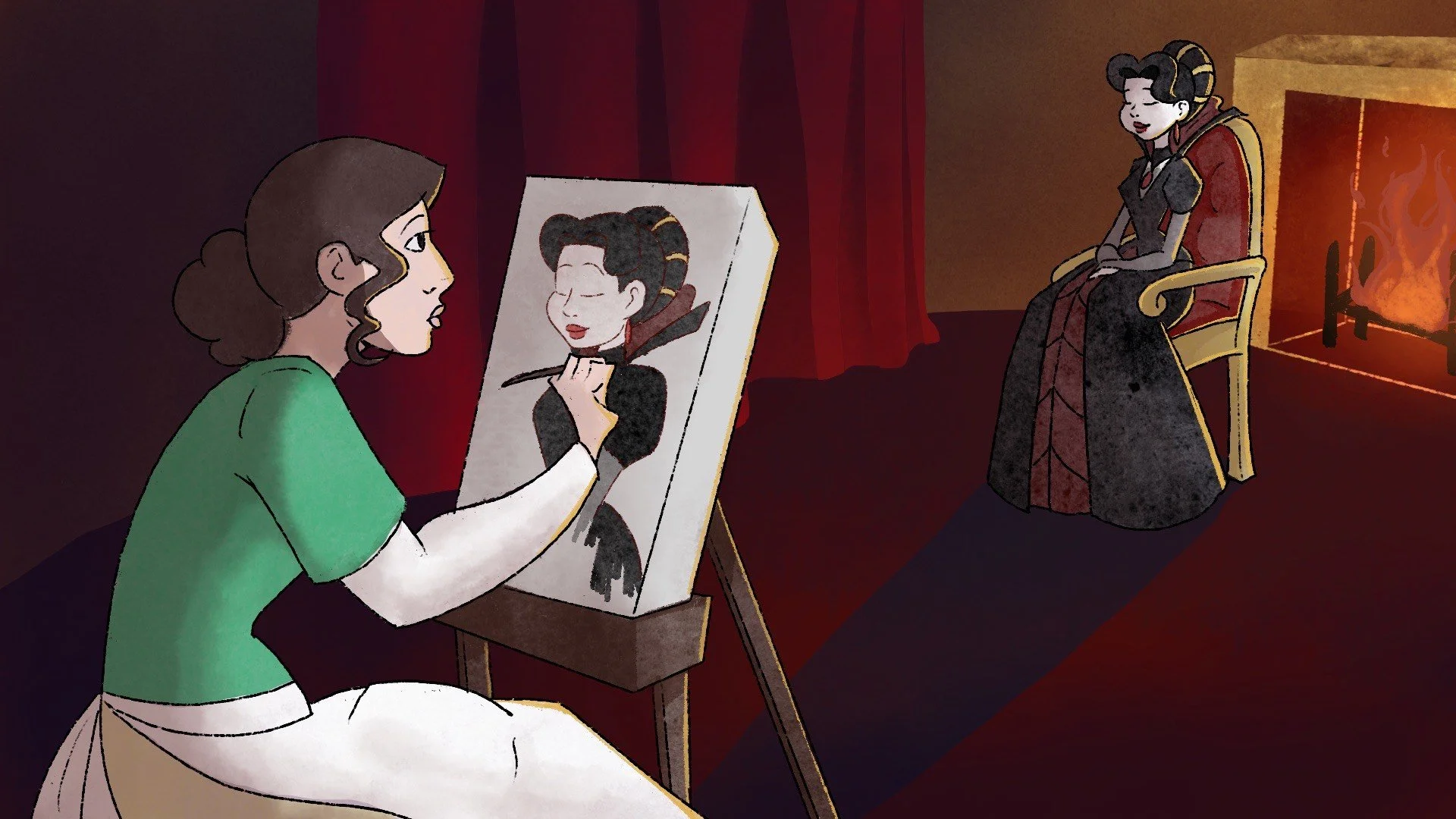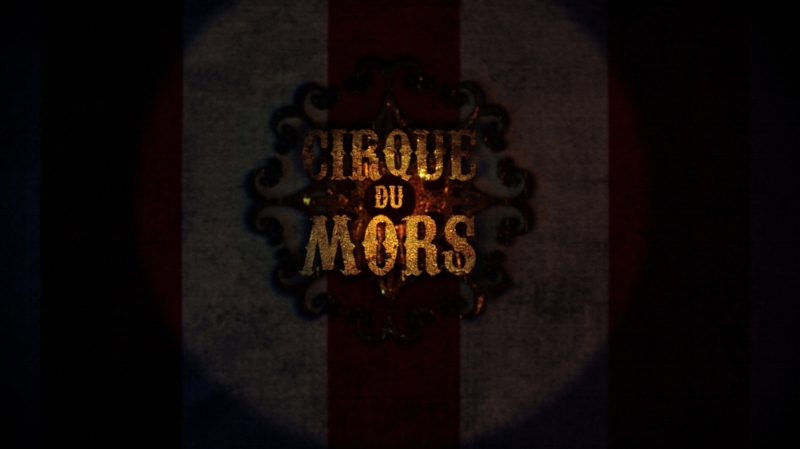Interview By Ninichi | Contact | Follow
I’m really excited to be introducing you to Game Flow in this blog! It’s a really interesting film about gaming and mental health which I had the honour to learn about & get involved in after discovering they were in need of a composer. I connected with Emily Crawford, the Director, Producer and Editor for the documentary and together we worked on the music for the film.
The soundtrack to the film has been completed and I’m super excited to see how the film evolves and how people react to it! Check out the trailer for Game Flow:
Now, let’s check out this wonderful interview with Emily to learn a bit more about this documentary and why this topic of gaming and mental health is so important…
Who are you and how long have you been involved in films?
‘I'm a documentary filmmaker, researcher, and writer based in Washington, DC. I've been working in film/television in some capacity for the past 7 years or so, but I only recently started producing and directing my own films. This will really be the first film on this scale that I've produced and directed myself.’
What’s Game Flow about and where did the inspiration behind this documentary come from?
‘Game Flow is a short documentary about how gaming can be a powerful tool to help people deal with anxiety and mood disorders. It celebrates the positive impact that games can have on mental health, and attempts to debunk misconceptions about video games being addictive or encouraging violence.
The inspiration for the film came from my own experience – several years ago, I was struggling with some mental health issues myself, and had also recently started playing a lot of video games for the first time as an adult. I noticed that games were helping me process my emotions in helpful ways, so I started researching the subject. I soon found that there was a lot out there to support what I was experiencing, not only anecdotal evidence but also studies that have been done, things like that. So I decided to make a documentary about gaming for mental health as my MFA capstone project for grad school, and that became Game Flow.’
Why do you feel this topic is important? What are you hoping people will takeaway or learn from this film?
‘I feel that this topic is important because outside of the gaming community, nobody really talks about the positive aspects of gaming. There is so much media attention given to the supposed downsides of games, like increased violence or addiction. But there's really very little solid research to support the idea that video games are addictive, or that violent games encourage aggression. There are interviews with psychologists and games researchers in the documentary that get into all of this.
Meanwhile, mental healthcare is really inadequate in most of the world, and mental illness still heavily stigmatized. Games are this potential tool for good that is largely being ignored. I'm not advocating for gaming to take the place of therapy or psychiatric care, of course, but games can be a really helpful supplement to treatment.
There is research being done on the subject, and there are some wonderful people incorporating gaming into mental healthcare, but no one really knows about it outside of some very small communities. So I wanted to bring attention the subject, to destigmatize mental illness and gaming, and to encourage people to explore the therapeutic potential of games, especially for mood and anxiety disorders.
I hope that the film will change at least a few minds about games, and video games especially – because the documentary is about games in general, including board games, cell phone games, etc. But I focused especially on video games in part because they're the most heavily stigmatized. There are still a lot of people out there who think that gamers are all antisocial teenage boys or men who live in their parents' basements. I want to show those people that not only can games be this powerful art form and force for good, but that the people who play them are really diverse and often brilliant, inspiring people who are successful in endeavors outside of gaming.’
Who’s been involved in the film and what has the process of making it been like?
‘I've had a wonderful, generous team of crew members, faculty advisors, funders, and other collaborators, and I could never have finished production without them. The crew were mostly my classmates from film school, as well as my very patient boyfriend, Joey Trimboli, who has also helped with marketing and outreach. Filming was a great experience because it involved meeting all of the amazing people who are in the film. I was able to connect with people over our shared experiences with games and mental health, and I made several real friends along the way.
The postproduction process has been a little tougher, mostly because I'm busier with other things theses days – I've been working on other documentaries in order to gain professional experience (and pay the bills), and so have been squeezing my work on Game Flow into my evenings and weekends. But finishing the rough cut felt really good, and I was able to graduate and receive my MFA degree based on that, and have gotten some great feedback on it so far. It's been rewarding to see all of the final pieces start falling into place – now that the soundtrack is done, all that's left to do is a final audio mix, color correction, and finalizing the graphics.’
What was your thinking behind the music soundtrack? What made you decide to work with me (Ninichi) & what has it been like?
‘I had gotten this idea stuck in my head that I wanted to do something influenced by chiptunes and retro game music in general. I think I wanted to evoke nostalgia for the games people played when they were young, because that's when most people first connect with the medium.
I posted on social media (@GameFlowDoc) that I was looking for a composer for the film. I heard from quite a few people, but Ninichi's portfolio really stood out, both because of her talent in general, and her obvious familiarity and skill with chiptunes and game music. Most of the composers who expressed interest in the project had done music for games, which I thought was really cool, but Ninichi was unique in that she had already done things very similar to what I wanted for the film.
Working with Ninichi was amazing! I had never had the opportunity to work directly with a composer before on one of my own films, so that was exciting in itself. Ninichi made the process really easy, and was very receptive to my input and feedback. I really think that the music she composed makes the film more powerful. It's also totally stuck in my head all the time now!’
What are your plans for the film, where can we watch it and what’s next for you?
‘As soon as the postproduction for the film is finished (which will be in Spring 2019), I'll be submitting it to festivals and doing some community screenings in the Washington, DC area. After a festival run, we'll make the film free to watch on Youtube and on our website, gameflowdocumentary.com. We'll be posting updates on the website regularly about screenings, festivals, and our progress in general, so anyone interested in the film should definitely keep an eye on the site. You can also sign up to receive updates about our festivals, our release date, etc.
I'm not sure what my next project will be yet, but I do know that Game Flow will be an ongoing effort even once the film is released and the festival run is done – I want to build out the website more, and make it a sort of living database of resources related to games and mental health.’
This all sounds fantastic! Thank you so much for taking the time to tell us about Game Flow. We will be sure to keep our eyes out for the documentary and to spread the word where we can!
See other films Ninichi’s been involved in:
Articles for filmmakers:
About the interviewer: Ninichi is a freelance composer who creates music for indie games, films and media. She is a great supporter of indie projects and runs this blog in the hope that it offers useful insights for the game development community.
She is open for commissions and would be happy to help you with the music to your game should you need it. Contact her now to discuss your project with her.













